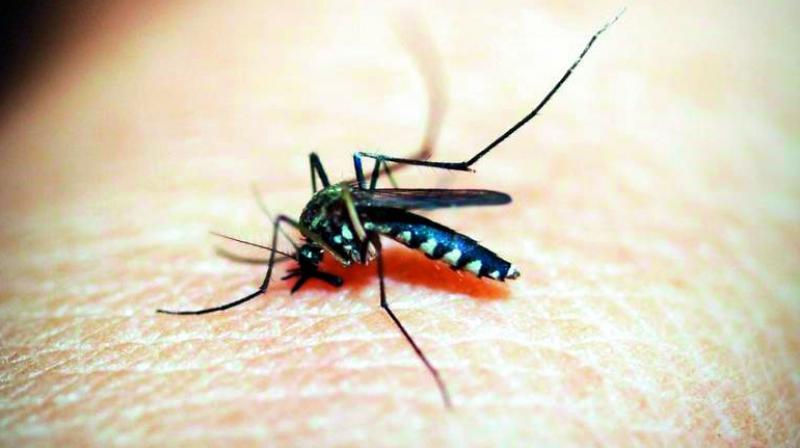Titupati: Health wing gears up to curb viral diseases
More than 20 dengue cases registered in the district.

TIRUPATI: Learning lessons from the high incidence of seasonal diseases, especially dengue, malaria and other viral fevers, that had kept the officials on their toes in the previous years, the medical and health department of Chittoor district is gearing up to check the spread of seasonal diseases well in advance.
With the district witnessing rains due to the arrival of monsoon, the temperature-levels have been coming down with which both the public and the officials concerned are worried about the outbreak of seasonal diseases. It has been learnt that poor sanitations in several hamlets have been causing much damage to the public health and significantly, malaria menace is on the rise in the district.
As a result, several dengue cases have been reported from the temple city of Tirupati and surrounding villages as well. Along with eastern parts of the district, some of the villages and towns in the western part of the district are also being affected due to such conditions.
According to the officials concerned in the health department, till now, more than 20 dengue cases have been registered across the district this year, as against a total number of 44 cases registered in 2018. However, the district witnessed maximum number of 421 cases in 2017.
Now, with the mercury-levels coming down and after a couple of showers, several cases of dengue, malaria and other water-borne diseases are being reported from various hospitals and rural health centres in the district.
However, with numerous patients approaching the hospitals with complaints of fever, the district medical and health department has geared up to curb the spread of seasonal diseases.
According to district medical and health officer Dr B. Ramagiddaiah, a total number of nine teams and four vehicles called mobile medical teams have been deployed in the district to take up active and passive surveillance activities on dengue and malaria.
“As the district has been facing severe water scarcity, people used to store the available water in their homes with which mosquito breeding has been on the rise, causing dengue and malaria. In order to prevent the spread of mosquitoes, people should maintain cleanliness along their premises as a basic prerequisite. In addition, we also roped in special teams to work in liaison with other departments to create awareness on maintaining good sanitation and hygienic conditions,” Dr Ramagiddaiah maintained.
“With the monsoon season continuing for another two months, water borne diseases may affect the public due to water contamination. Besides, personal hygiene and sanitation, every Friday has to be observed as dry day to avoid water stagnation. People should immediately rush to the nearby hospital if they find any fever related symptoms,” the DMHO observed.
Meanwhile, health department staff have been swung into action to eradicate the mosquito breeding menace. They are now identifying the mosquito breeding spots and have begun curtailing activities and also house-to-house survey has begun.

